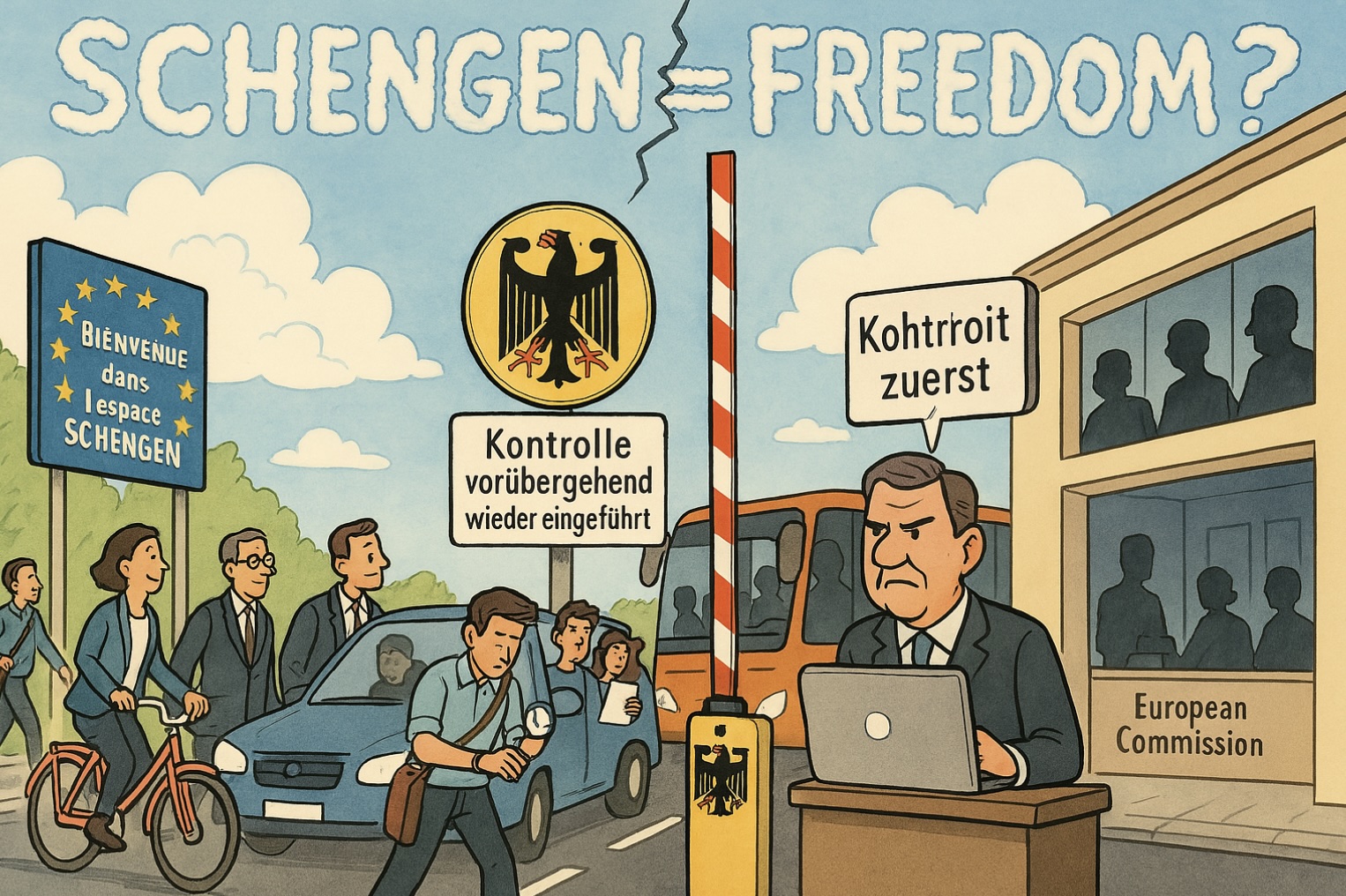Border Dispute: Luxembourg Slams Germany’s Controls as ‘Ineffective’

Berlin Extends Border Checks — Luxembourg Pushes Back.
Luxembourg’s Interior Minister Léon Gloden has launched a sharp criticism of Germany’s border control policy, calling it “ineffective” and “harmful.” Speaking to Euractiv, Gloden said the German government’s narrative that checks improve security is false and based on “tokenism.”
“Border controls create problems without solving the real ones,” he stated.
Background: Border Controls Return to Schengen
In September 2024, Germany introduced border controls with all neighboring Schengen countries, citing rising irregular migration and cross-border crime. Initially intended to last until March 2025, the measure was extended to September 15, 2025 by Chancellor Olaf Scholz.
Interior Minister Nancy Faeser said the controls were “effective and necessary,” but Luxembourg disagrees.
Why Luxembourg Is Opposed
Over 225,000 cross-border workers enter Luxembourg daily — many from Germany.
Commuters face traffic jams, delays, frustration, and some now reconsider working in Luxembourg.
Businesses suffer from disrupted logistics and increased operational costs.
Gloden says Germany has failed to minimize disruption as promised.
“Many Luxembourgers no longer travel to Trier to shop. Commuters call me daily with complaints,” Gloden told Euractiv.
Legal Action Looms
Luxembourg will file a formal complaint with the European Commission.
The opposition party LSAP wants to escalate the case to the European Court of Justice (ECJ).
Meanwhile, German police claim the controls helped detect large numbers of illegal entries, though exact numbers are unclear.
A spokesperson for the European Commission reminded that border checks within Schengen must be temporary and proportionate. Germany has not yet provided a timeline for their removal.
What’s at Stake?
At the heart of this dispute is the integrity of Schengen’s open border system — a symbol of EU integration. For Luxembourg, it’s not just about convenience, but about preserving one of the core European freedoms: the free movement of people.
Unless compromise is found, other EU countries may follow Germany’s example — undermining the unity that Schengen represents.
Подсказки: Schengen, border control, Luxembourg, Germany, EU, migration policy, free movement, European Court of Justice, commuters, politics








